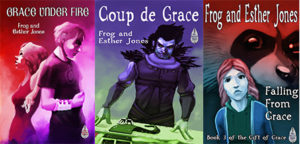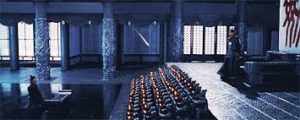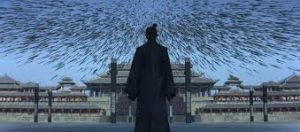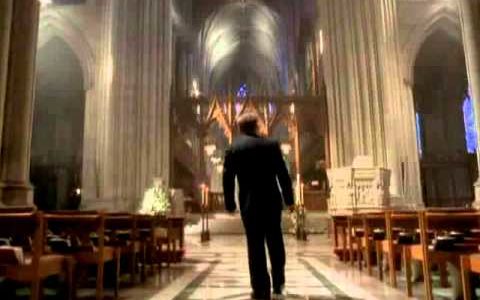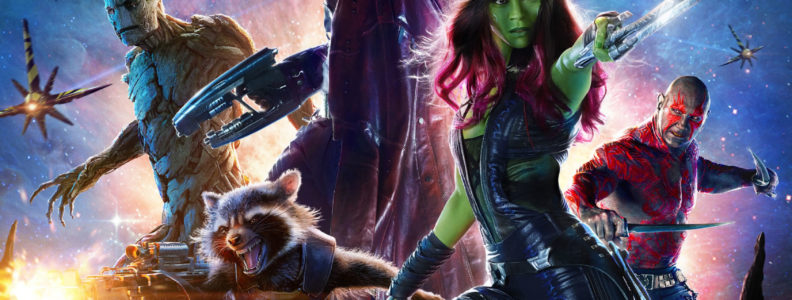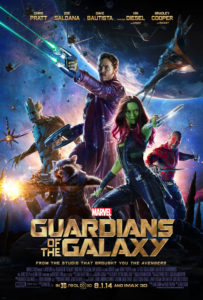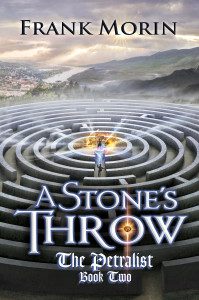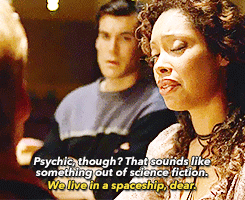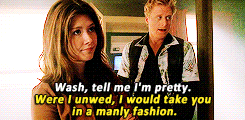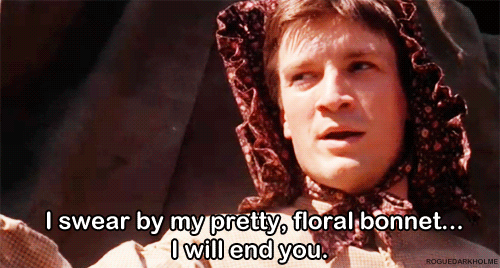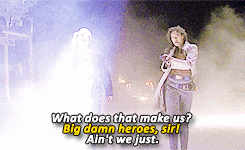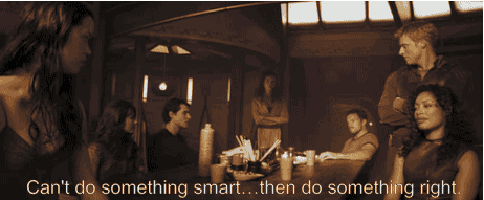A Guest Post by Frog Jones
We live in a golden age for television shows. Netflix has surrounded us by amazing, boundary-pushing videos, HBO is constantly upping its game, and the cable networks have had no choice but to follow suit. Even among this eruption of great television, and as devoted a fan as I am to basically all of it, I continue to hold that there is no greater hour of television made than “Two Cathedrals,” the season 2 finale of The West Wing.
And yet, I’ve never really broken down why.
First off, we have to place the episode in context. Sorkin did a great job of building to the moment for this one, and so the audience approaches “Two Cathedrals” already having some information. That’s handy, for a writer; laying the exposition elsewhere lets you spend a great deal of time bringing nothing but impact later on. For a similar effect, watch the first “Avengers” movie; almost no exposition was necessary, because that got taken care of in the initial, individual character films.
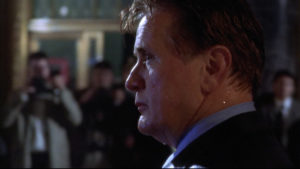 So, coming into “Two Cathedrals,” we know some things. We know that President Bartlet has been concealing his Multiple Sclerosis diagnosis from the public, and that the team is getting ready to break the news. We know that the question on everyone’s mind is whether or not he will announce his candidacy for re-election. And we know that his secretary, the much-loved Mrs. Landingham, was killed by a drunk driver the previous night.
So, coming into “Two Cathedrals,” we know some things. We know that President Bartlet has been concealing his Multiple Sclerosis diagnosis from the public, and that the team is getting ready to break the news. We know that the question on everyone’s mind is whether or not he will announce his candidacy for re-election. And we know that his secretary, the much-loved Mrs. Landingham, was killed by a drunk driver the previous night.
The show opens with a number of discussions that make it clear the Democratic party wants Bartlet to step down, anoint a chosen successor. The president’s mind, though, is on Mrs. Landingham. We get flashbacks to his past, revealing his complicated relationship with her. On the show to date, Mrs. Landingham has constantly been the one person who at no point took any guff from the president, and now we see why. She’s not just his secretary; she was his self-appointed big sister—the one who became his family while his father abused him. And she recruits him to stand up to his father on behalf of the women on staff at the private school where he is a headmaster.
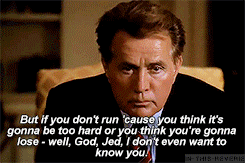 He is, initially, reluctant. But after Mrs. Landingham “gives him numbers,” he is forced with a choice: do the right thing, or do the easy thing. Mrs. Landingham makes that apparent, telling him that if he’s simply denying her request because he’s scared to do what he knows is right then, “gosh, Jed, I don’t even want to know you.” Young Jed sticks his hands in his pockets, turns away, and smiles. Mrs. Landingham tells him (and us) that this means he’s made his decision, and he is going to do it.
He is, initially, reluctant. But after Mrs. Landingham “gives him numbers,” he is forced with a choice: do the right thing, or do the easy thing. Mrs. Landingham makes that apparent, telling him that if he’s simply denying her request because he’s scared to do what he knows is right then, “gosh, Jed, I don’t even want to know you.” Young Jed sticks his hands in his pockets, turns away, and smiles. Mrs. Landingham tells him (and us) that this means he’s made his decision, and he is going to do it.
From a writer’s perspective, it’s the next scene that makes this episode great. Everything builds to it, and it is not repeat not the climax to the story. Jim Butcher has long advocated for a writing technique called the “big middle,” in which a massive event in the middle of the book is the focus of the first half of the book, and catapults the story forward. “Two Cathedrals” makes expert use of this technique, rising the audience to an epic showdown between President Bartlet…and God.
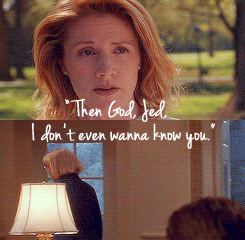 Standing in the National Cathedral, Bartlet asks the Secret Service to clear the building, leaving him alone in the massive House of God. Approaching the altar, Bartlet begins to list his grievances. A devout, educated Catholic, he addresses God in Latin. He blames God for the list of wrongs in his presidency, and asks God why the right things he has done have not been enough for him. His anger grows as he talks to his Maker without response, and as he loses control of himself he switches back to the schoolboy. His father and The Father become conflated, and he looses a tirade of cursing, entirely in Latin, at God, while standing before the altar of the National Cathedral. It is, in short, breathtaking.
Standing in the National Cathedral, Bartlet asks the Secret Service to clear the building, leaving him alone in the massive House of God. Approaching the altar, Bartlet begins to list his grievances. A devout, educated Catholic, he addresses God in Latin. He blames God for the list of wrongs in his presidency, and asks God why the right things he has done have not been enough for him. His anger grows as he talks to his Maker without response, and as he loses control of himself he switches back to the schoolboy. His father and The Father become conflated, and he looses a tirade of cursing, entirely in Latin, at God, while standing before the altar of the National Cathedral. It is, in short, breathtaking.
And it ends by giving us the answer to the question everyone has been asking. “You get Hoynes,” Bartlet says as he throws down a cigarette on the floor of the cathedral, one last act of rebellion against his father and his Father.
The rest of the episode proceeds with the staff learning of Bartlet’s decision. Toby is presented with a “life boat,” a job offer lined up for him by Leo; he rejects it, then immediately begins to yell at Leo for even presuming he’d take it. Leo assure Toby that he never considered Toby would take the job; Toby inquires as to why he set it up.
“To show him that,” responds Leo. One character, only one, that believes Bartlet is going to change his mind. Toby’s eyes widen as he realizes what Leo is saying; that Leo knows Bartlet better than he knows himself.
And in doing so, Leo gives us the string of hope that’s keeping us going. Bartlet’s already made his decision, and made it in a big, climactic way, but Leo’s move opens that door just a crack. Just enough to keep the audience engaged, while continuing to despair. It’s perfect. It’s brilliant. And it sets up what happens next.
Throughout the episode, an unusual storm has been brewing. Also, the latch on the portico door to the Oval Office has been broken. These two events, having been hung on the wall earlier in the episode, culminate as the storm rips open the door and, on reflex, President Bartlet calls out for Mrs. Landingham.
Then his face falls as he realizes what he’s done. But only for a moment.
Because, at this moment, Mrs. Landingham walks through the door and chides him for yelling. Whether she is an instrument of God or simply a figment of Bartlet’s imagination is left to the audience, but she delivers God’s retort to the accusations Bartlet made back in the National Cathedral. The counter-arguments culminate in Bartlet “giving himself numbers,” a move designed to line up with the earlier conversation. If Bartlet is simply not running for re-election because it’s going to be too hard, then “well, gosh, Jed, I don’t even want to know you.”
After this the episode is all denouement. A musical sequence culminating in Bartlet standing before a press conference, being asked whether he is running, ends with him sticking his hands in his pockets, turning away, and smiling. We all know what that means.
The pacing of “Two Cathedrals” is breathtaking, and it is easily the best example I can point to of visual media completely nailing the “big middle” concept. The middle of any story is the hardest thing to right, the thing that bogs the story down into exposition and dragging characters from point A to point B. By executing a “Big Middle,” a mini-climax in the book, “Two Cathedrals” absolutely rockets its pacing forward, keeping its audience gripped. This trick of writing, in addition to some fabulous acting on the part of Sheen and everyone else, makes this episode quite possibly the best hour of television ever produced.
 Frog Jones writes with his wife, Esther. After a ten-year vow to never show each other a word they had written, they eventually broke down and wrote a novel together. Together, they have published the Gift of Grace series from Sky Warrior Books, as well as short stories in anthologies such as How Beer Saved the World, First Contact Café, and Tales from an Alien Campfire, as well as many more. The Joneses live on the Puget Sound in the State of Washington with Oxeye, who is twenty-five pounds of pure bunny. Frog’s works can be found at http://www.jonestales.com, and he also appears on the Three Unwise Men podcast at http://3unwisemen.com.
Frog Jones writes with his wife, Esther. After a ten-year vow to never show each other a word they had written, they eventually broke down and wrote a novel together. Together, they have published the Gift of Grace series from Sky Warrior Books, as well as short stories in anthologies such as How Beer Saved the World, First Contact Café, and Tales from an Alien Campfire, as well as many more. The Joneses live on the Puget Sound in the State of Washington with Oxeye, who is twenty-five pounds of pure bunny. Frog’s works can be found at http://www.jonestales.com, and he also appears on the Three Unwise Men podcast at http://3unwisemen.com.
